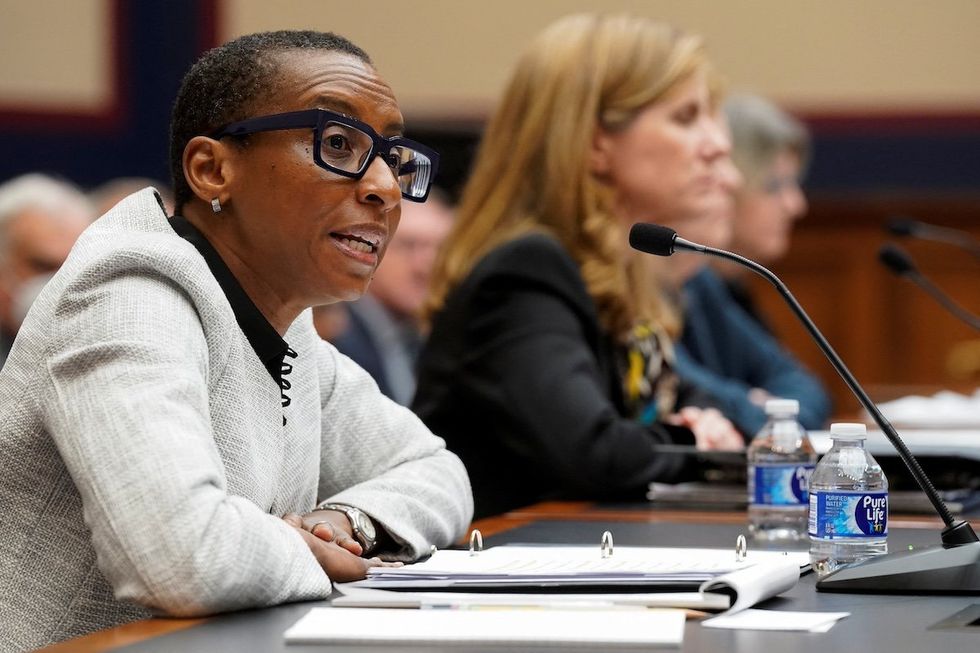Last week, members of the US Congress grilled the presidents of Harvard, the University of Pennsylvania, and MIT on whether calls for the genocide of Jews violated campus bullying and harassment policies. Their refusals caused an international uproar, leading over 70 American lawmakers to call for the schools’ governing boards to remove the trio from their posts. To date, Liz Magill, president of Penn, has resigned, while Claudine Gay, president of Harvard, has apologized, saying “words matter.”
But the fallout could go further. Since the outbreak of the Hamas-Israel war, campuses have become hotbeds of tension between students supportive of Palestinian self-determination and their peers who back Israel’s right to self-defense. Chants of “Intifada” have terrified Jewish students and prompted professors to tell their parents to keep them away from schools like Columbia, because “we cannot protect your child.” Meanwhile, students engaged in pro-Palestinian protests worry that they won’t get jobs after graduation.
All these incidents have not only crystallized concern about the politicization of universities but galvanized activists on both sides of the divide in ways that could have lasting political implications.
The sentiments of Conservatives who long lamented the rise of “woke culture” on campus are echoing among Jewish liberals who feel “betrayed” by their schools’ failure to condemn antisemitism. The right has also seized an opportunity to unite feuding factions within the conservative movement, including social conservative activists focused on issues of school curricula and parents’ rights, evangelical voters, and members of the party establishment.
On the left, some young progressives are breaking ranks with the Biden administration over the US president’s support for Israel, a divide “decades in the making.” Other Democrats worry that strong criticism of Israel's military campaign in Gaza will help elect Republicans, leading to calls for moderation and internal challenges to several “Squad” members, including Reps. Jamaal Bowman (D-N.Y.) and Cori Bush (D-Mo.) for the 2024 primaries.
But the polling paints a muddy picture. One found President Bident’s approval rating among all Democrats rose nine percentage points to 59% in December — but another survey showed the share of Democrats under age 35 who say he is “too pro-Israeli” doubled to 41% between October and November and 20% say they are less likely to vote for him because of how he has handled the issue.
Will campus conflict transcend academia to produce a lasting generational realignment around Israel? We’re watching that and whether either of the other university presidents will step down.






